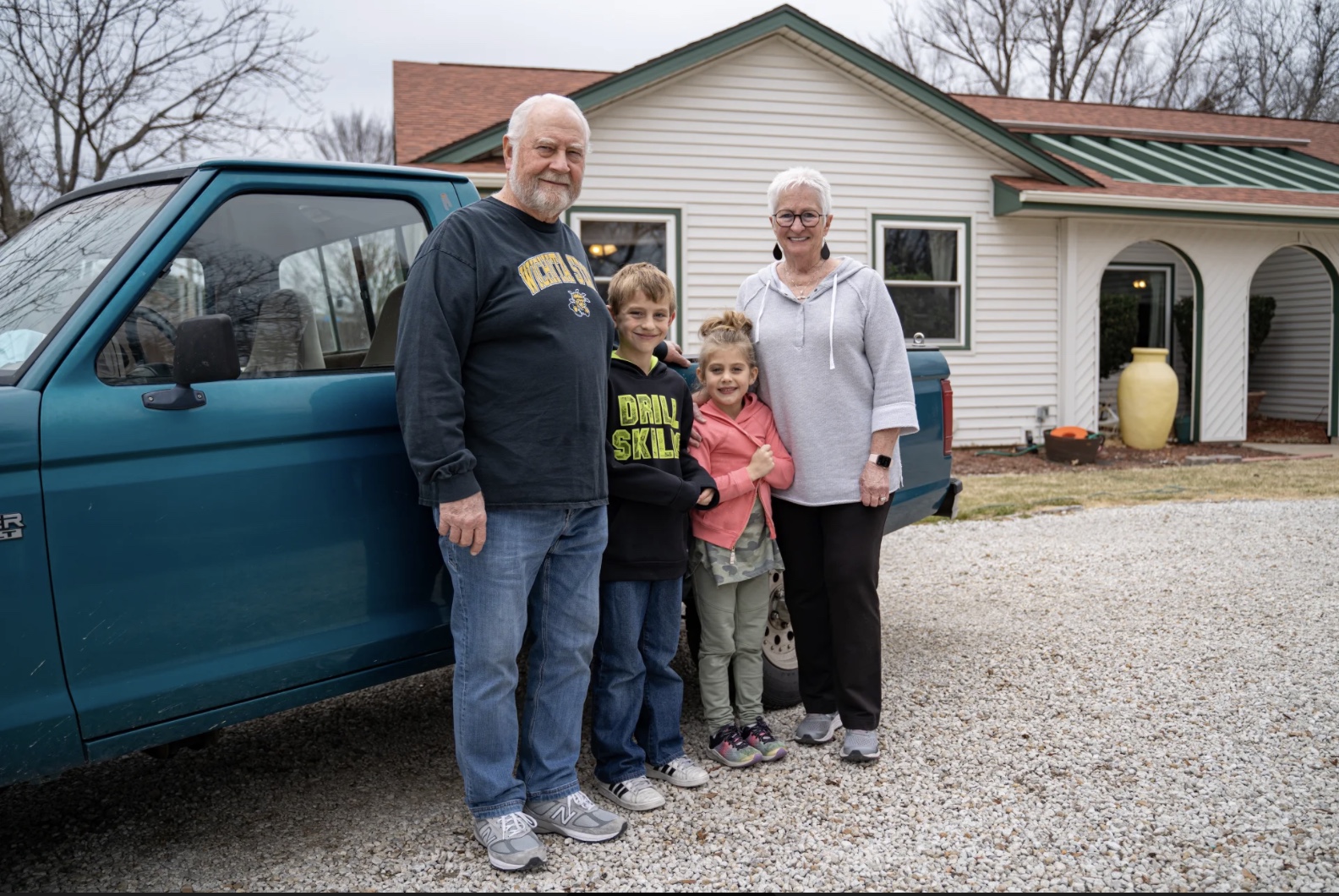Gary O’Neal of Bel Aire stood on his deck, the smell of frying bacon wafting up from the grill. He wasn’t just enjoying a leisurely Wednesday evening, though. He was meal-prepping for yet another school day.
O’Neal has been retired for almost 10 years. At 73, he certainly wasn’t expecting to go back to school any time soon. But now he and his wife Jackie spend their days helping grandson Jaxon and granddaughter Austyn with their online classes through Isely Elementary.
The Wichita Board of Education’s decision in late November to switch to fully remote learning meant a major transition for families of the 13,000 elementary school students who were sent home.
For O’Neal’s daughter, a single mother working full-time at an in-person sales job, staying home wasn’t an option.
“My daughter has no one to take care of them and she can’t afford to pay anyone to take care of them,” O’Neal said. “The fortunate thing is, my wife and I live across the street.”
Austyn and Jaxon arrive at 7:30 in the morning. Their grandparents feed them breakfast before getting them set up in different rooms with their respective laptops.
“The first day they did this, it was a nightmare just trying to get them on and get their sound to work and to get their audio, video to work,” O’Neal said.
“Fortunately, my wife is fairly tech savvy, so she was able to get them going.”
Pat Brown of Wichita has also been hosting a remote learner, her great grandson, Camden. A fifth grader at McCollum Elementary and one of Brown’s seven great grandchildren, Camden spent his first week of online learning at home.
“He has two sisters and a cousin over there, and they were giving him so much static and everything, and I think his mother wanted a break, too,” Brown said.
“I said, ‘He can just come and stay.’”
Brown, 80, said she was a bit nervous at first, but her granddaughter reassured her that Camden was a self-sufficient learner.
“I said, ‘You know, Brittany, I’m not good at schooling and I’m not good at computers. That’s for sure,'” Brown said. “And she said, ‘Grandma, he knows how to do everything. You’ll be okay.'”
But on his first day, Camden couldn’t get logged into his physical education class.
“Well, he couldn’t get on and he couldn’t get on, and I thought, oh my gosh, he’s going to miss gym class. What’s going on here?” Brown recalled.
But after consulting Camden’s online schedule, Brown realized they had tried logging in 30 minutes before class started and the virtual classroom wasn’t open yet.
Brown said she sees online schooling as a viable option for young students growing up in an increasingly digital world.
“Maybe this computer thing is better for them,” Brown said. “They say they’re not getting as much. It took a while to get it all organized and whatever, but maybe it is the better thing for them, because computers, as you go on in life, show up more and more.”
But O’Neal said remote learning isn’t an optimal solution for many families, especially those with single parents who can’t afford to stay home or pay for supervision. “My wife and I are retired. I retired nine and a half years ago. This was not in our retirement budget,” O’Neal said.
“By the COVID protocol, technically, they probably shouldn’t be around us at the age we are, but we have no choice.”
Ultimately, he said, the sooner students can get back to learning safely in person, the better.
The board of education will meet to re-evaluate its learning model on Jan. 11.
For her part, Brown said she enjoys the extra time she’s spending with her great grandson.
“When you quit having your kids around, that’s when you get old,” Brown said.
“I think it’s a good thing for older people to be around them, because you learn a lot with them and you stay young with them.”
This story was produced as part of the Wichita Journalism Collaborative, a partnership of The Active Age and six other media organizations working together to bring timely and accurate news and information to Kansans.












